The Shared Crossing Research Initiative
Transforming a Culture of Silence
"I can't begin to tell you how grateful I am that there are people in the world who are looking into this. You are the first people that I have felt have some understanding of what I went through."
Angela D.
The Shared Crossing Research Initiative (SCRI) is a not-for-profit collaboration with the Family Therapy Institute of Santa Barbara. The mission of SCRI is to research end-of-life experiences and their therapeutic value for patients, their families and loved ones, and caregivers. This work informs the development of educational and training programs for the public, healthcare professionals, and others working at end of life.
Displays of conscious, connected, and loving end-of-life experiences serve as examples for others to follow. They offer a life-changing perspective by awakening people to what matters most in life. Firsthand accounts of shared crossings can initiate significant personal transformations in the lives of those who hear them, which SCRI aims to harness to effect positive transformations relating to end of life.
Our Projects
Examining the Effects of Programs Designed to Improve the End-of-Life Experience
SCRI’s first research project began in April 2013 under the direction of William Peters and in collaboration with Dr. Michael Kinsella and a team of researchers at the University of California at Santa Barbara. The aim of this study was to assess the merits of the Shared Crossing Project’s programs and methods designed to create ease around end of life and to facilitate shared crossing experiences.
This research included over 75 individuals who participated in Shared Crossing Programs and found that people who followed the Shared Crossing Protocols reported having a more meaningful appreciation and peaceful acceptance of death. In addition, participants reported a wide variety of profound and healing end-of-life phenomena, including shared death experiences.
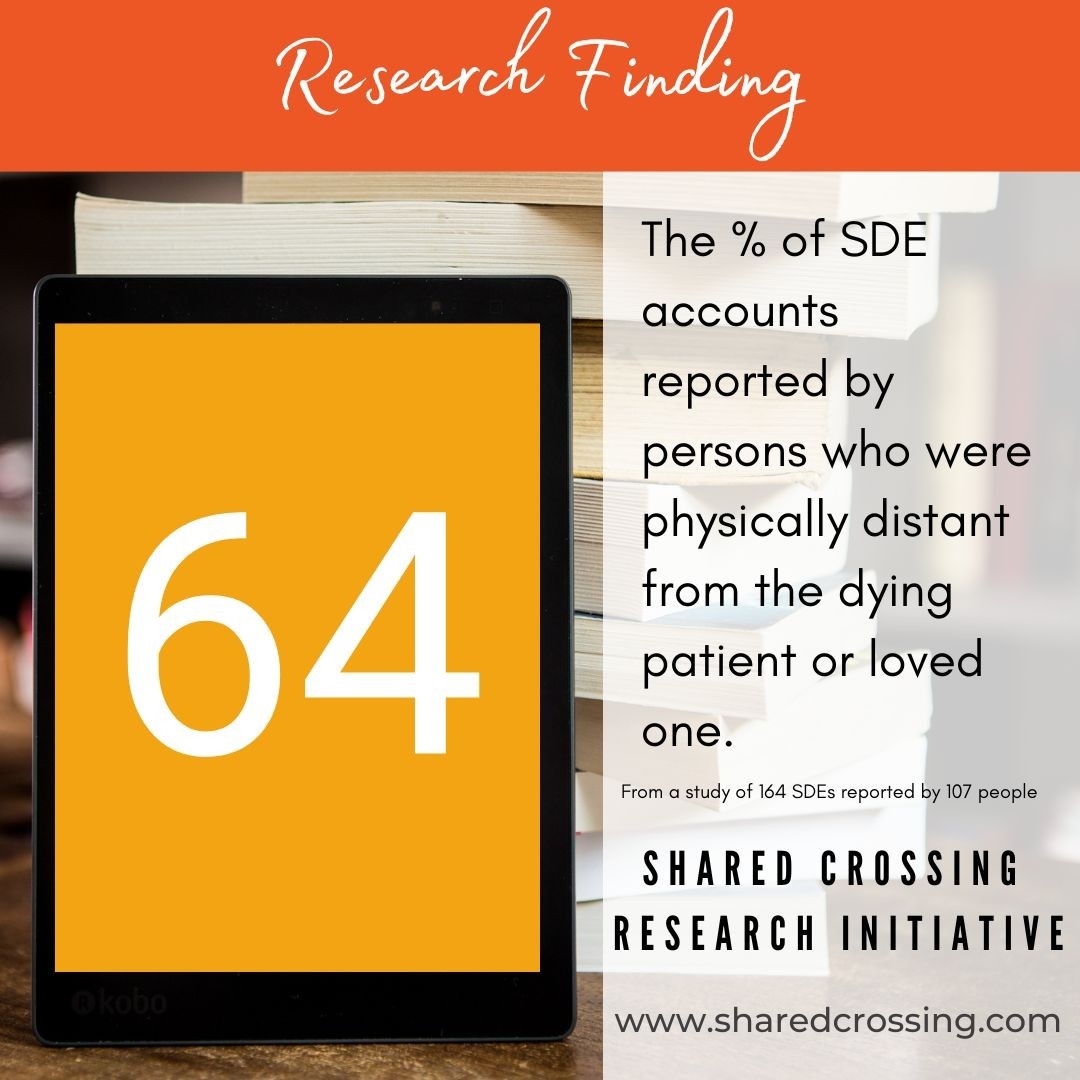
While more research is underway, this initial study suggests a strong correlation between participating in Shared Crossing Programs and experiencing a variety of end-of-life or shared crossing phenomena. Drawing upon this work, together with a review of the literature and his clinical practice with individuals and families at end of life and in bereavement, William created the Shared Crossing Spectrum of End-of-Life Experiences (SELE), a comprehensive and user-friendly guide for better understanding the entire range of end-of-life experiences.
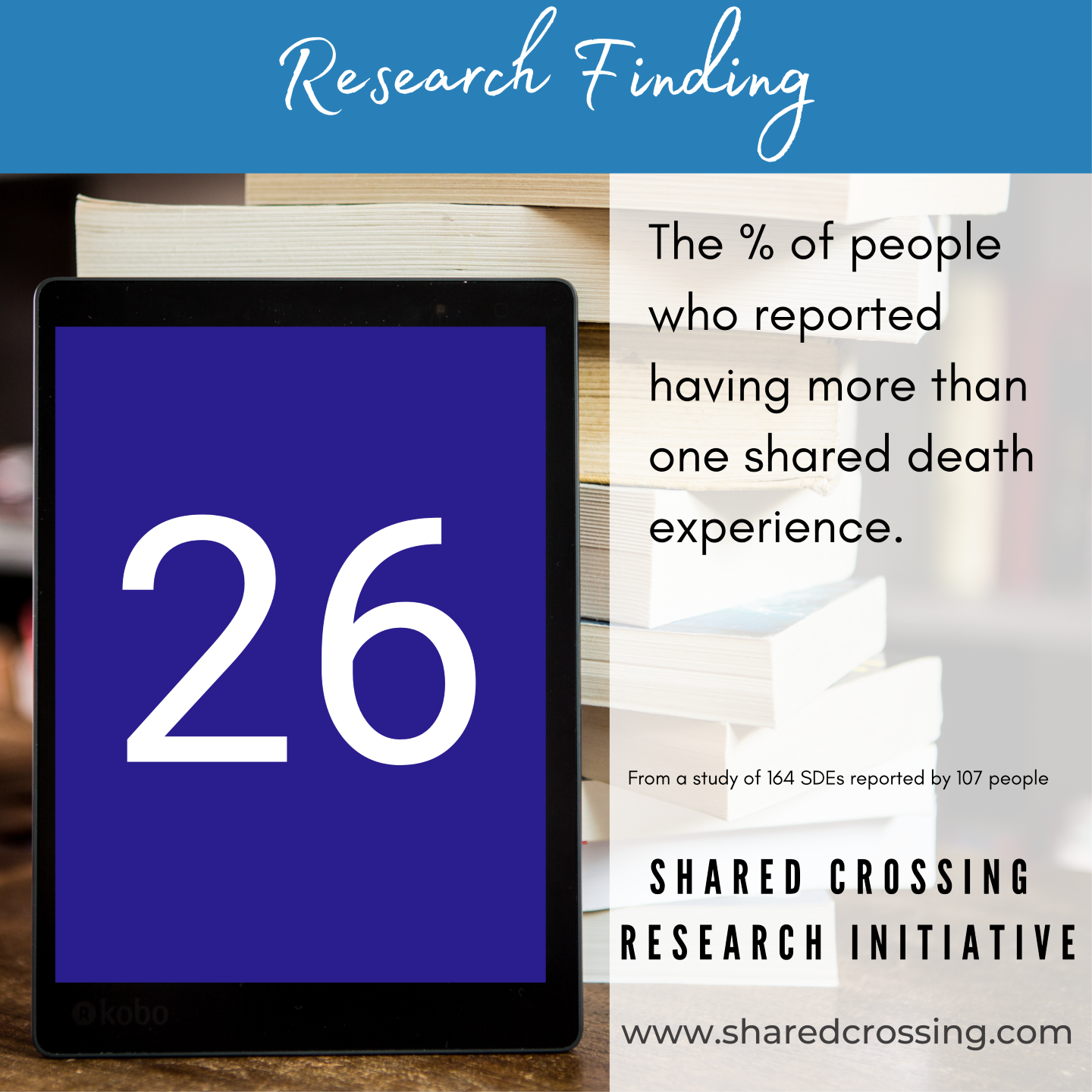
Documenting First-Hand Reports of Shared Crossings
In March of 2018, SCRI initiated the Shared Crossing Testimonial Project (SCTP). The goal of this project was to initiate community building and dialog (local, national, and international, as well as both academic and general public) around shared crossing experiences and their therapeutic benefits. To achieve this goal William Peters, Director of SCRI, invited Dr. Michael Kinsella as Chief of Research to join him in creating the first database devoted to shared death experiences and other shared crossings.
This database is the first of its kind to gather and classify shared death experiences (SDEs) from people across the globe. SCRI hopes to continue collecting and documenting cases in order to expand the representation of end-of-life experiences as they appear among various cultures and groups.
SCRI's growing international library of personal accounts of profound healing experiences occurring around death form the basis for an upcoming book titled At Heaven’s Door: What Shared Journeys to the Afterlife Teach About Dying Well and Living Better. The aspiration behind this book is to apply stories of shared death experiences to transform personal and social relations to death and dying.
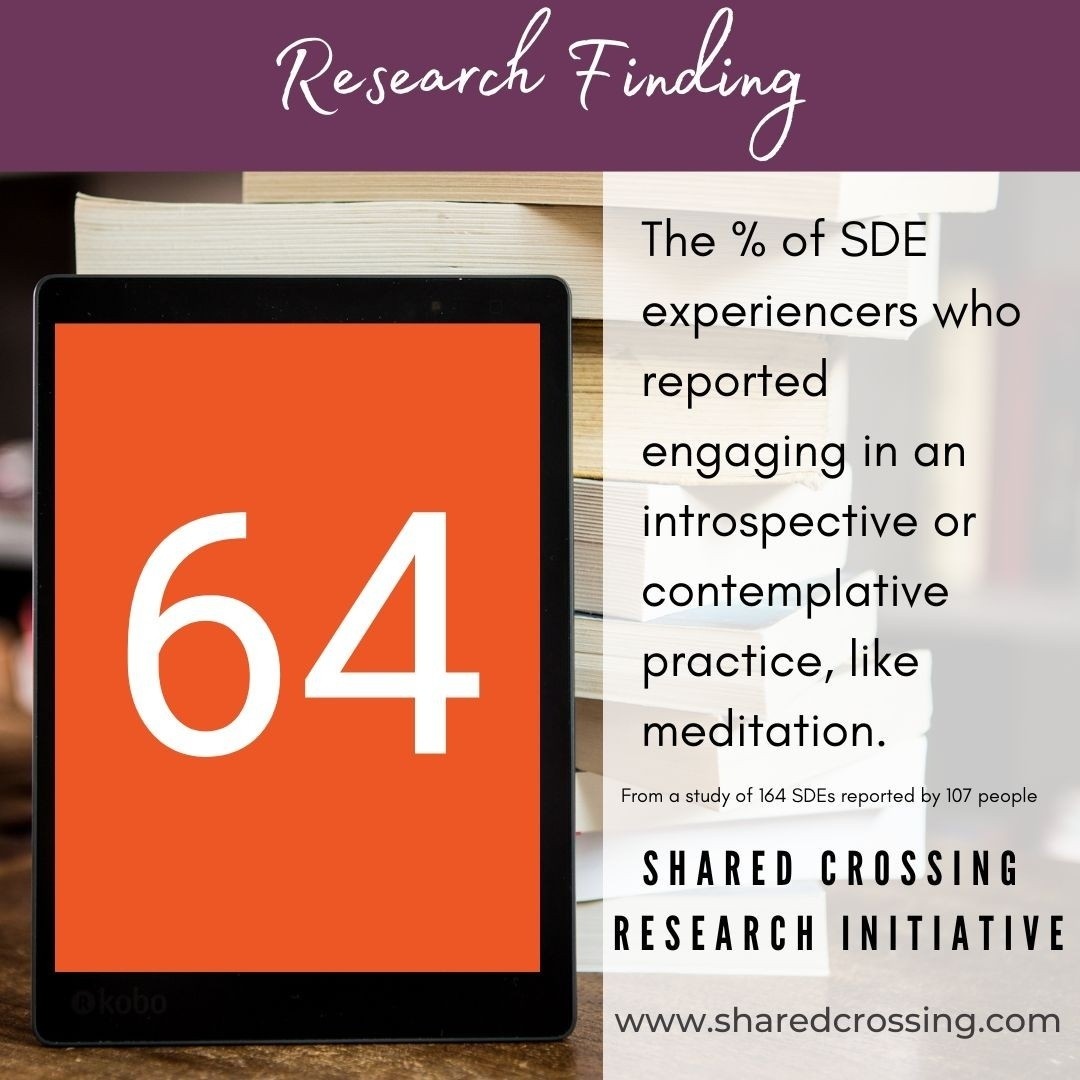
The Therapeutic Benefits of Shared Crossings
Our next phase of research focuses on analyzing the full range of benefits that may arise from shared crossings and developing strategies with which to best apply these benefits. SCRI remains committed to community building and sustained dialog around shared crossing experiences and their therapeutic benefits.
Most people reporting an SDE told us that their experience had transformed them in significant ways, including:
* A lessening of grief;
* A loss of fear of death;
* Awakening to a new appreciation for life;
* Becoming more interested in spiritual matters;
* Being absolutely convinced that there is life after death.
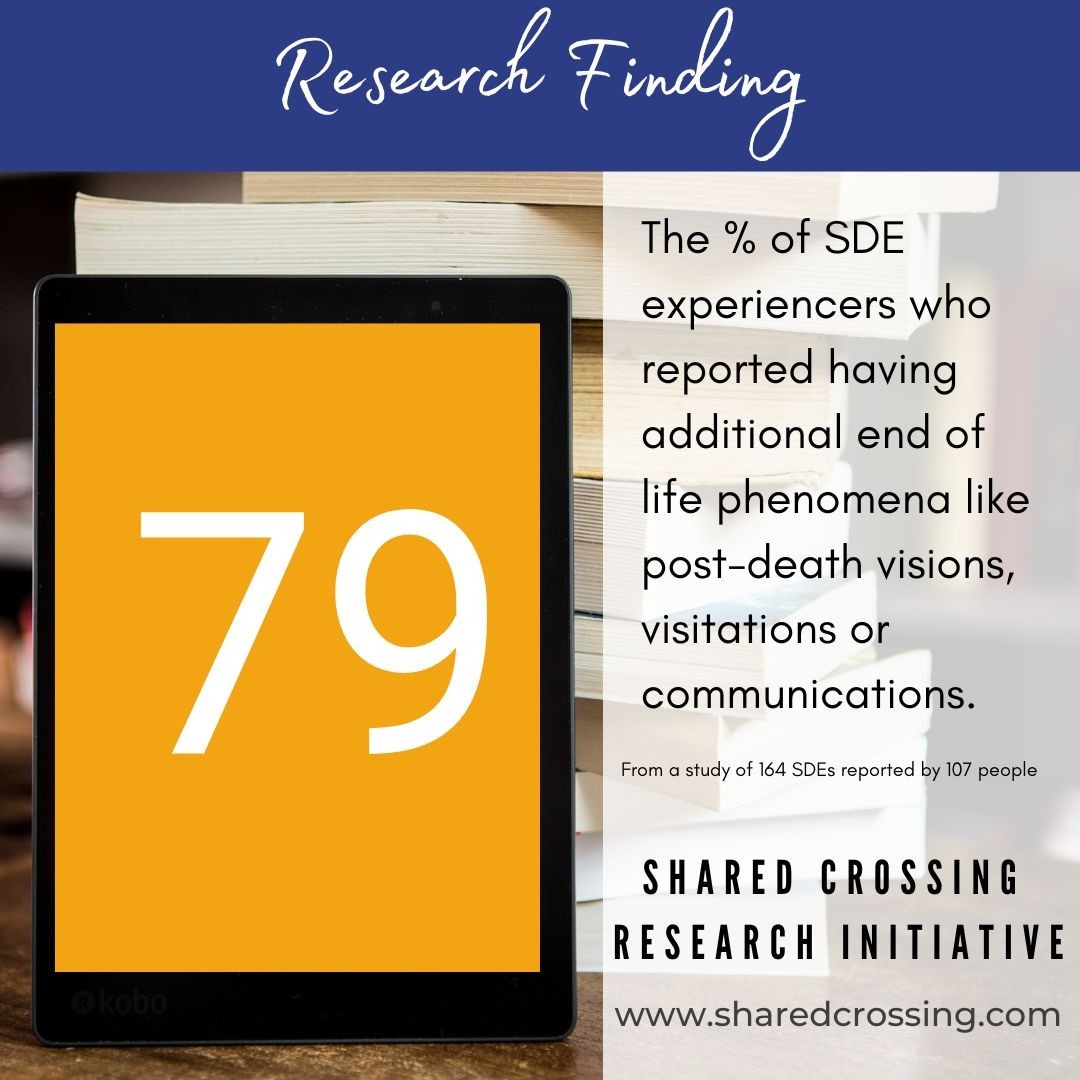
Our Publications
The Spectrum of End-of-Life Experiences: A Tool for Advancing Death Education
Published in OMEGA - Journal of Death and Dying
January 28, 2022
Abstract: Studies on end-of-life experiences (ELEs) suggest that caregivers and loved ones of dying patients also have ELEs, though these are rarely explored. This article introduces the Spectrum of End-of-Life Experiences (SELE) as a descriptive list of types of ELEs reported by all members of the care unit, including dying patients, their caregivers, and their loved ones. We applied SELE towards identifying ELEs reported by 143 caregivers and loved ones and successfully identified every experience. Interviews revealed that participants viewed their ELEs as profound communicative events, yet a substantial minority also reported struggling to name and process these experiences. We propose that SELE be included in death education to raise awareness about ELEs that can occur within the care unit, and we suggest that SELE has additional applications, including use as a prognostic aid in end-of-life care and as a therapeutic aid for bereavement support.
Read the ArticleShared Death Experiences: A Little-Known Type of End-of-Life Phenomena Reported by Caregivers and Loved Ones
Published in the American Journal of Hospice and Palliative Medicine
April 5, 2021
Abstract: Anecdotal evidence suggests that some loved ones and caregivers of dying patients undergo a type of end-of-life phenomena known as a shared death experience or SDE, whereby one feels that one has participated in a dying person’s transition to a post-mortem existence. Anecdotal evidence also suggests that SDEs can have a range of profound psycho-spiritual-emotional effects. However, SDEs have been all but ignored in hospice and palliative medicine, leaving professional bereavement services uninformed about SDEs and leaving individuals who report SDEs without adequate professional support to process and integrate them. To better understand the features and effects of SDEs, an inductive content analysis was performed on written accounts and transcripts of semi-structured interviews with 107 persons reporting a total of 164 SDEs. Analysis revealed four distinct though non-exclusive modes of an SDE: remotely sensing a death, witnessing unusual phenomena, feelings of accompanying the dying, and feelings of assisting the dying. Analysis also revealed three major domains of SDE effects: changes in belief, the reconciliation of grief, and the perception of continued relational bonds with the deceased. Interviews highlighted both difficulties and therapeutic value in people openly discussing their experiences with health professionals. We believe that integration of information about SDEs offers an opportunity to add to the breadth and quality of psychological, spiritual, and bereavement care.
Read the ArticleInternship Program
The Shared Crossing Research Initiative (SCRI) is looking for qualified interns to join our research team! Click below for more information.
More InfoFor Healthcare Professionals
It takes a remarkable person to work with death and dying every day. At the Shared Crossing Project, we honor and acknowledge your compassion and commitment to those under your care and to their families.
We understand the unique challenges you face and the support you need, both professionally and personally, and have several options available to help you.
Support for Healthcare Professionals
Discover What's Possible
Learn how you and your loved ones can prepare for the best end of life possible … and even share in the journey beyond the veil with grace, love and wonder. Register for the Shared Crossing Pathway Seminar
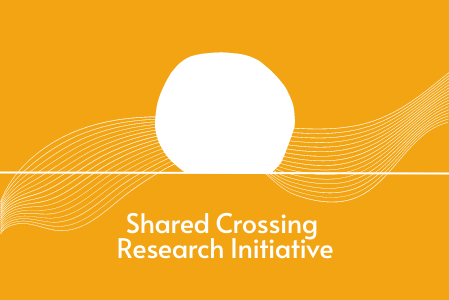
Support the Research
SCRI is funded entirely through the generosity of individuals and organizations like you. Your donation will help us transform our culture’s view of death, reducing fear and anxiety, and relieving the grief that can cripple survivors.

Share Your Story
We invite you to share your own account with us and contribute to our research. We hope that by hearing your story, others will learn about what healing experiences may await them and their loved ones at the end of life.
“As I'm talking to you about it, William ... your questioning and your interest helps me to articulate more about what that experience was, because really, I hadn't talked to anybody about it. I didn't know how to talk to anybody about it, what to say. Who would understand, what the heck I was even talking about?”
Madelyn S.

